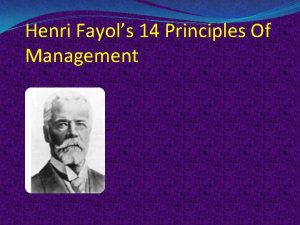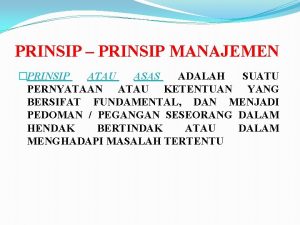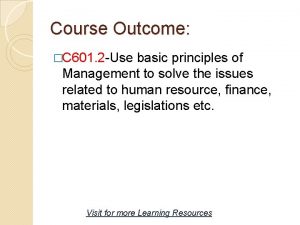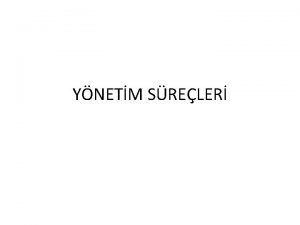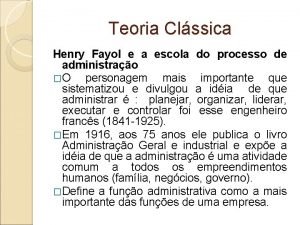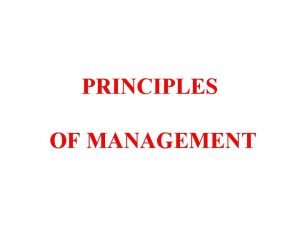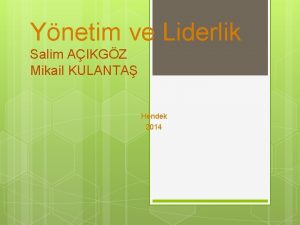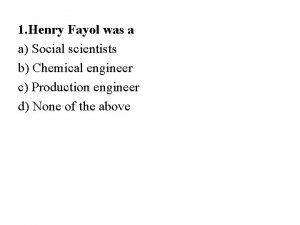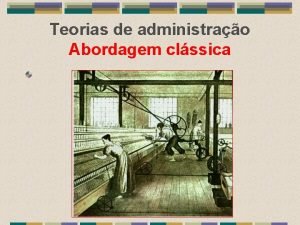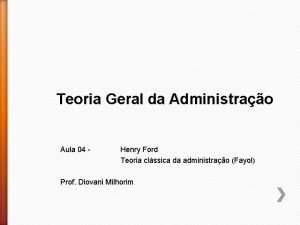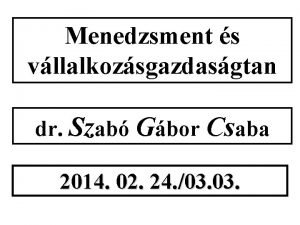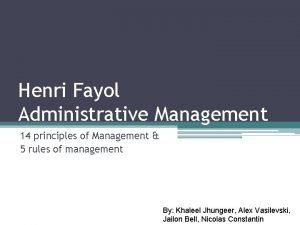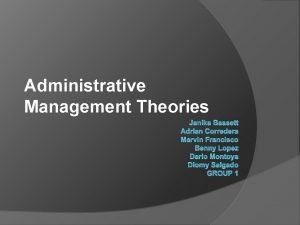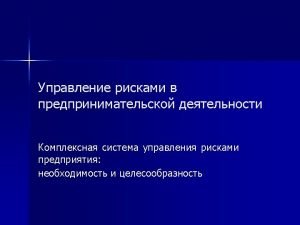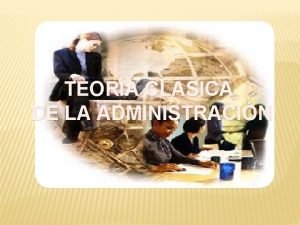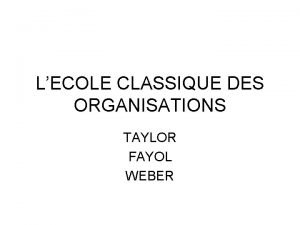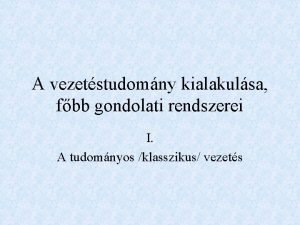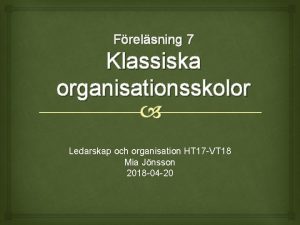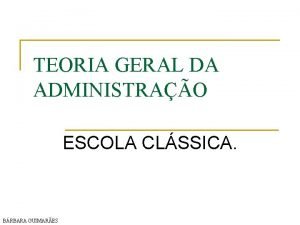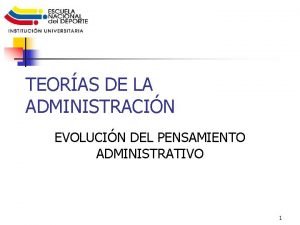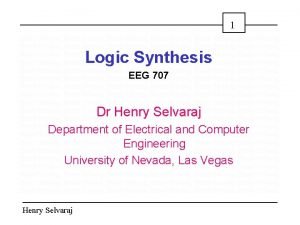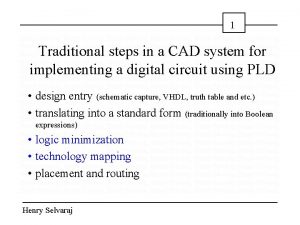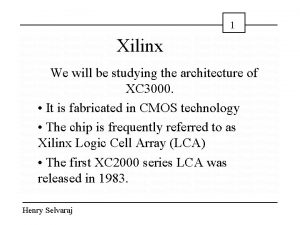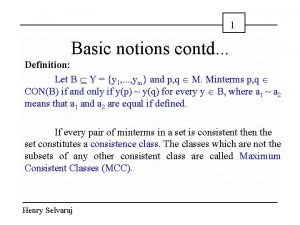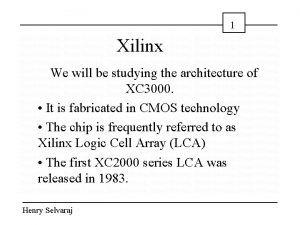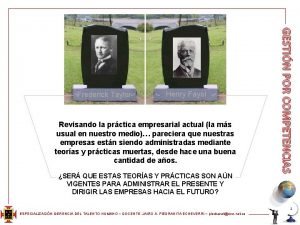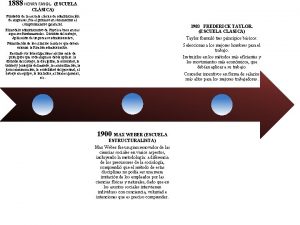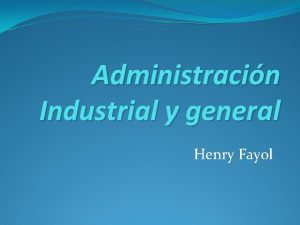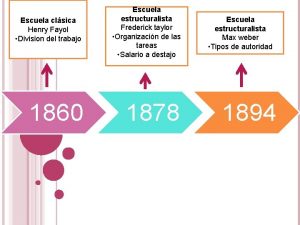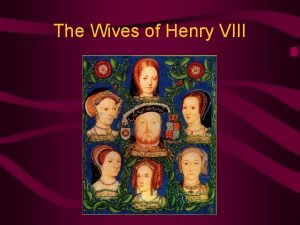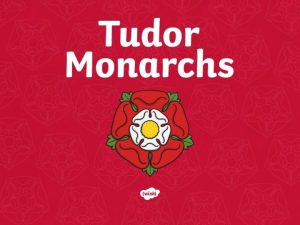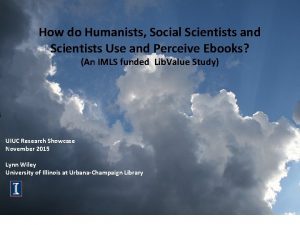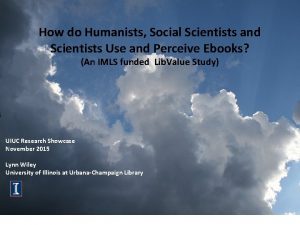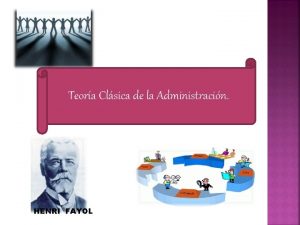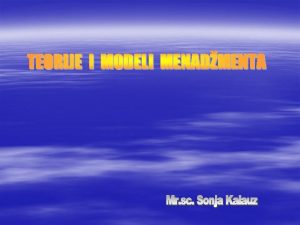1 Henry Fayol was a a Social scientists

























- Slides: 25

1. Henry Fayol was a a) Social scientists b) Chemical engineer c) Production engineer d) None of the above

2. Which of the following statement best described the principle of 'Division of work ' a) work should be divided into small tasks b) labour should be divided c) resource should be divided among jobs d) it leads to specialization

3. Which of the following is Not a principle of management given by Taylor a) Science, not rule of Thumb b) Functional foremanship c) Cooperation, Not Individualism d) Harmony not discord

4. Which of the following best describe 'Mental revolution ' a) it implies change of attitude b) the management workers should not play the game of one upmanship c) both management and workers require each other d) workers should be paid more wages

5. Which of following is not among the levels of management ? A) Top level management B) Intermediate Level C) Middle level management D) Lower level management

6. Which scholar's definition on management is " Management is the art of getting things done through and with people in formally organised groups". ? A) Koontz B) J. N. Schulze C) S. George D) Henry Fayol

7. Which among the following is not a nature of Management principles ? A) Rigid B) Universal C) Relative D) Human nature

8. Who is known as 'the Father of Modern Theory of Management' ? A) Harold Koontz. B) Henry Fayol C) F. W. Taylor D) Max Webe

9. Which of the following is not a Management Principle ? A) Order C) Equity B) Discipline D) Cooperation

10. Which of the following is not a function of management ? A) Planning B) profit earning B) Staffing D) Budgeting

11. Who is known as the father of scientific management? A) F. W. Taylor B) Max Weber C) Henry Fayol D) S. George

12. management is need at. . . (a) Top level (b) Middle level (c) lower level (d) all levels

13. Top management is concerned with. . . . (a) carrying suggestions upwards (b) maintaining liaison with the outside world (C) transmitting orders downwards (d)none of these

14. management is called a process because. . . (a) it is applicable to the manufacturing process (b) it is relevant for social organization (c) it involves a series of action (d) All of above

15. middle management. . (a) consists of departmental managers (b) motivates lower management (c) Both a&b (d) None of these

16. Top management consists of. . . (a financial managers (b) sales manager (c) personnel manager (d)Board of Directors and chief executives

17. management is. . . function (a) dynamic (b) controlling (c)directing (c) planning

18. The main aim of Taylor was to. . . . (a) improve labour relations (b) improve productivity (c) To attempt a general theory of management (d) None of these

19. unity of command implies (a) A subordinate should receive orders from all the superiors (b) individuals must sacrifice in the larger interest (c) be accountable to one and only one superior (d) None of these

20. Authority refers to. . . . (a)Getting work done (b)right to get work done (c)being in a managerial position (d)scalar chain

21. Which among the following involves in planning process? A) Selection of objective B) B) determine the way to achieve objective C) both A and B D) None of the above

22. Which among the following is a single use plan? A) Objectives B) B) Policies C) Rules D) Budget

23. Planning process begans with a) setting objectives b) b) identity alternatives c) developing planning premise d) selecting alternatives

24. Find the odd one out a) goals b) objective c) polices d) motivation

25. The purpose and the aim for which the organization is set up and operate is called a) objective b) strategy c) policy d) procedure
 Henri fayol 14 principles of management introduction
Henri fayol 14 principles of management introduction Teori organisasi klasik henry fayol
Teori organisasi klasik henry fayol Prinsip manajemen equity
Prinsip manajemen equity Henry fayol was a renowned
Henry fayol was a renowned Dikey eşgüdümleme nedir
Dikey eşgüdümleme nedir Teoria classica de fayol
Teoria classica de fayol Father of administrative management
Father of administrative management Aportaciones de fayol
Aportaciones de fayol Henry fayol yönetim ilkeleri
Henry fayol yönetim ilkeleri Harmony not discord
Harmony not discord Enfase
Enfase Fayol
Fayol Teoria de henri fayol
Teoria de henri fayol Fayol 14 vezetési elve
Fayol 14 vezetési elve Henri fayol administrative management
Henri fayol administrative management Théorie de fayol
Théorie de fayol 14 principles of henri fayol
14 principles of henri fayol General and industrial management
General and industrial management Deming system of profound knowledge ppt
Deming system of profound knowledge ppt Funciones basicas de una empresa segun fayol
Funciones basicas de una empresa segun fayol Taylor fayol weber
Taylor fayol weber Teoria della direzione amministrativa
Teoria della direzione amministrativa Fayol vezetéselmélet
Fayol vezetéselmélet Henri fayol administrativa skolan
Henri fayol administrativa skolan Fayol considerava a empresa como sistema racional de regras
Fayol considerava a empresa como sistema racional de regras Puente de fayol
Puente de fayol
